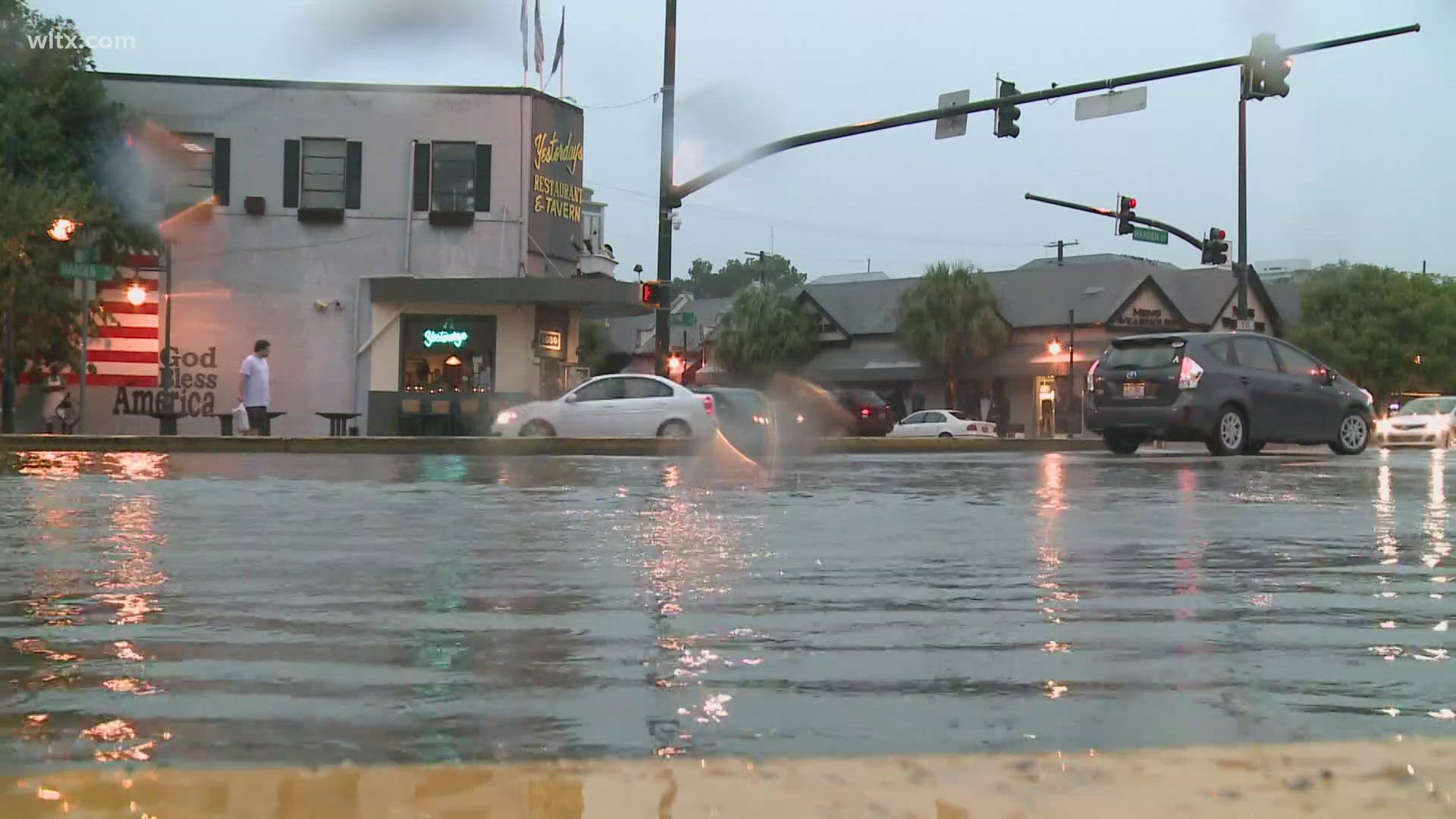COLUMBIA, S.C. — It’s been a wet week across the Midlands and the rain isn’t over yet.
As folks across the area prepare for the most severe impacts of Tropical Storm Debby, what happensif you do suffer water damage to your home or car.
Edward Jones lived and worked in Five Points during the summer of 2015.
One night when coming out of work, Jones made the mistake of trying to drive through flood waters.
“As I started driving the water was up to my bumper. I hit a dip before I got to the parking lot at Wells Fargo. It just stalled. It just killed the engine right there," Jones said.
The Columbia resident then had to climb out of his truck and leave it behind.
“That’s when I figure, 'Okay, I sucked in a bunch of water, the engine’s hydro locked, I've got to do the hike up the hill to my place on green street',” Jones recalled.
When flood water enters your engine it’s an automatic trip to the mechanic. But what happens when that same water comes pouring into your home?
Zach Wilkerson with Servpro of the Midlands said they've seen a lot of water damage over the years.
“Usually, we see a lot of ground water going into low-lying slabs, basements, but typically it’s from above. Whether it’s wind-driven rain or trees on houses. If you do come across water in your basement or if you see water on the floor and it’s a little bit higher than, let’s say a foot, I would not go in there. I would avoid it because there is always power that will run and depending on the age of your home, those wires could be potentially underneath that water,” Wilkerson said.
When damage occurs, the first priority is to stop the water.
“You want to go ahead and address the source. So if you have water that’s dripping inside of your house, you want to get it tarped up. If you have a tree that’s on the house, you want to get that tree removed and then tarped. So you really want to try to prevent the water from continuously coming into your house,” Wilkerson explained.
Contacting a restoration company after damage occurs can get your home dried out, repaired and back to normal quickly. If you have flood insurance, they can even work directly with those companies, so you don’t have to.
“If it’s a cleanup, water extraction, removal of damage, debris, things of that nature, we’ll take care of that. Typically we’ll set equipment to start the drying process and then we come back every day or every other day, depending on the severity of the damage,” Wilkerson said.
Officials say having a plan in place before flooding happens is crucial.

